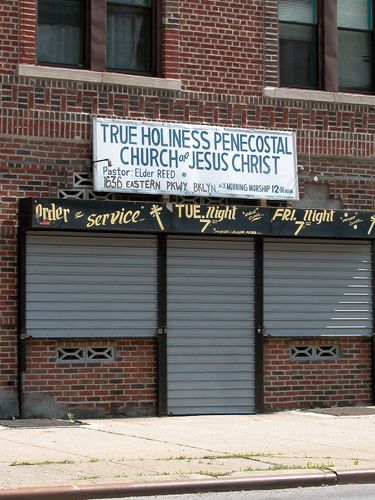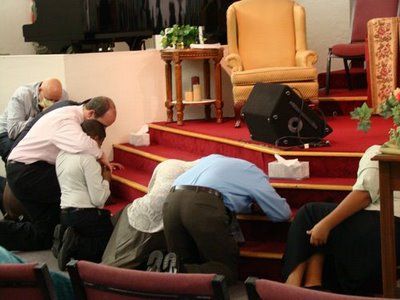“Love the Lord with all your heart, and with all your soul,
and with all your MIND”--Matt 22:37
Short answer: we can. We must. Catholics are mandated to contemplate and study the Bible--it is the Word of God! We must "ponder and treasure these things" in our hearts. (Dei Verbum)
We are most certainly free--indeed obligated--to meditate upon the Scriptures and see what God is telling us privately, personally. For example, if I am prayerfully asking for direction as to how to provide food for my family when I've lost my job, and then I turn to Scripture and open to the verses in which Jesus multiplies the loaves...well, I am certainly free to interpret that as God telling me, "Don't worry, my beloved! I will take care of that!"
However, the fire that lit the Protestant Reformation (PR) was the rejection of the authority of the Catholic Church to be the guardian and final interpreter of the Word of God. What was wrought by the PR was the idea of, "me, my Bible and the Holy Spirit", and I don't need a Church to tell me what it means! This paradigm, sadly, has led to doctrinal chaos and confusion.
It is the reason that, instead of One Church, established by Jesus, delivered to His Apostles, handed on to bishops through 2000 years of apostolic succession, we now have the obscenity of tens of thousands of different Christian denominations, each claiming that their interpretations of Scripture are the correct ones. It has led to the doctrinal chaos and confusion that now leads millions of folks to a multitude of differing beliefs, each from reading, curiously, the same Scripture verses!
There are denominations that preach that baptism is an ordinance. No! It's one of the 2 sacraments! It needs to be done in a river! No! It needs to be done by sprinkling! And Bible verses will be quoted to support their views.
There are denominations that preach that we cannot lose our salvation once we accept Jesus into our hearts. No! Other preachers say that the Bible clearly teaches that we can, indeed, falter and lose our way, even after becoming a Christian. Scripture verses will be provided by both denominations, each ostensibly supporting their contradictory points of view.
There are denominations that preach that Saturday should be the day of worship. And others that profess that Sunday is the Lord's Day. Scripture verses will be cited to support their contradictory views.
The fruit of the PR's denial of the authority of the Catholic Church to be the Bible's authentic interpreter is that every day there are churches like this one popping up on every street corner in the US.

Each one claiming that they have the correct vision of Christ's words. Each one answerable to no authority save that of their own fallible pastor's personal interpretations and practices.
When a person reads and studies the Bible, comes to a differing opinion than his pastor, the natural result of this type of "me, the Bible and the Holy Spirit" thinking is that this person now feels free to start his own church. Reason tells us that this cannot be what Jesus envisioned for His Body, the Church. It cannot be good that there is doctrinal chaos and confusion with thousands and thousands of differing understandings of what the Bible says. That's just what the devil ordered, in my opinion.
We need a Church that is the guardian and authentic interpreter of the Word of God, so when there are disagreements about the Scriptures (and there most certainly will be, for the Scriptures themselves say that there are things that are "hard to understand")
In them there are some things hard to understand that the ignorant and unstable distort to their own destruction, just as they do the other scriptures. --2 Peter 3:16we will have the assurance that we will be guided by Christ himself, through His Body, the Church, to the correct meaning.
"Always
be prepared to give an answer to everyone who asks you to give the
reason for the hope that you have. But do this with gentleness and
respect" - 1 Peter 3:15

